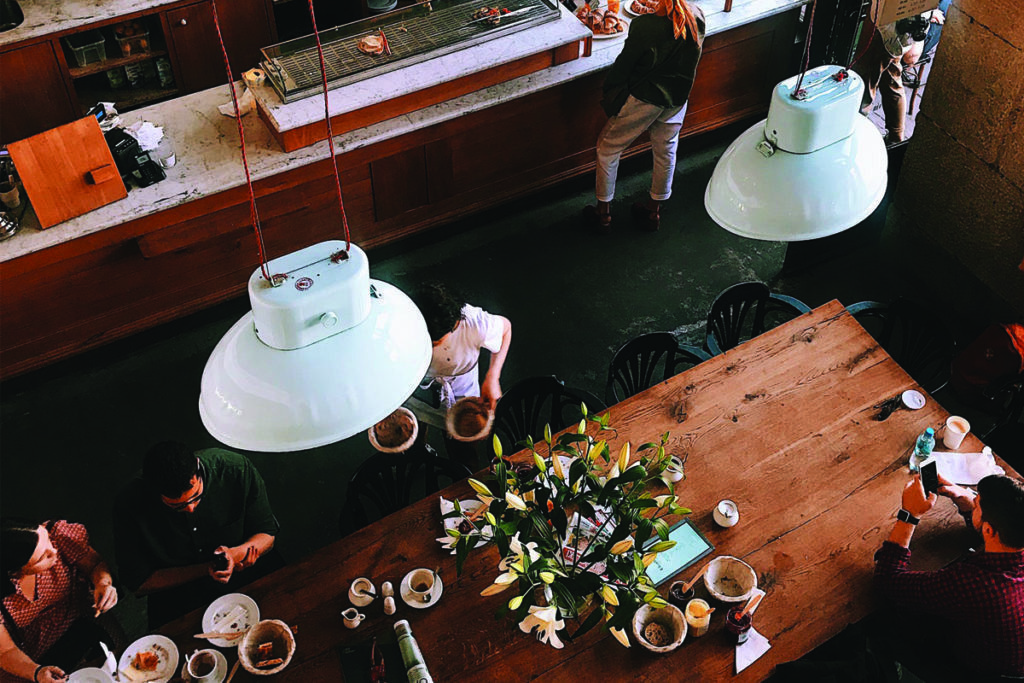Global Supply Chains related to the Hospitality Industry are going under serious consideration to the level of sustainability they entail.
For years, the negative and socio-economic impacts have been overlooked and accepted to be part of the process.
Hospitality incorporates food and beverages, non-food and drinks, furniture and equipment supplies and more.
Improvement is required in every area and it is time there was action taken. Often decisions are based on the cost and efficiency of a product or service, as a result this leads supply chains to source the cheapest materials or provider to source the product from.
What does a sustainable supply chain management mean to you and your organisation and can users of the product or service play a part in helping sustainability levels?

What are the 3 key challenges when it comes to Hospitality and Supply Chains?
- Supply
- Price Volatility
- Uncertainty
All three of these challenges are driven by the fact the UK relies on a global supply chain to service the sector.
From a food perspective, over 50% of all food is sourced from Europe or further afield, non-food and drinks has been said to be around 85%, so we are heavily dependent on the rest of the world to supply our industry.
With Brexit and COVID-19, we saw that many supply chains have shut down which puts an immense amount of strain on existing supply chains and as a result has reflected on the cost.
The cost to import, the cost to transport the goods, it is the perfect storm because for many businesses, pre-existing contracts cannot be honoured.
To align suppliers with your business principles, from a sustainability perspective and quality of assurance perspective, that requires time and vetting.
Many companies are finding themselves having to react to unavailability of products, having no choice but to pay market prices for products and on top of that is the uncertainty of their businesses future.
Procurement and supply chain businesses’ heavily rely on data to make their decisions, to make decisions on how they should move forward.
The disarray from the past two years means that the trends in the data are unreliable and hard to base decisions on. It’s been a really challenging time for these businesses’.
The digitisation of supply chains and meeting the compliance challenges that entails will improve the quality of data at business’ disposal and ultimately help make supply chains more resilient.

What are the key trends for procurement and supply chain?
1. Digital Transformation
There’s a desire to explore ways to gather and analyse the data required to inform purchasing decisions.
However, there is still not an equivalent system that allows procurement professionals to capture all of the appropriate information and intel on the supply chain across the board. Until this happens, there are too many manual spreadsheets which can be error prone and make it difficult to make decisions.
Moreover, customer experiences have changed.
Manual processes cannot support the digital self-serve initiative that has now been implemented and that customers expect to avail of. Experts predict this trend will not slow down.
2. Visibility in Supply Chains
Having full visibility across the board is important, but particularly when trying to mitigate global supply disruptions. Businesses will need to fully analyse their ability to view their entire, global supply chain.
They must have an entire overview of all trading partners; manufacturers, shippers, forwarders and others and have the connectivity to provide real-time updates as part of the process.
3. Labour
As the industry continues to face labour shortages, businesses will see the need to upskill their current workforce, maximising on their talent.
The benefits of this would result in; improved productivity, agility and resilience, reduced costs, increased access to quality talent and flexibility.
If this is not feasible within the workplace due to high demand and busy periods, the industry will have to look at hiring an experienced external workforce.
This would increase the demand for temporary and freelance workers.
This area of work is increasing, particularly within countries with lower domestic work opportunities. Also, due to the pandemic and the rise in adoption of remote teams, freelancing is providing a viable career path for skilled professionals in locations where domestic opportunities are seen to be low.
Emerging Strategies for Sustainable Supply Chain Management in Hospitality
Sustainability in supply chains has become a critical focus for the hospitality industry. To address environmental, economic, and social challenges, businesses are adopting innovative strategies to improve resilience while reducing environmental impact.
1. Local Sourcing and Regional Partnerships
Prioritising local suppliers is one of the most effective strategies for reducing carbon footprints and supporting regional economies. By sourcing food, beverages, and materials locally, hospitality businesses can lower transportation emissions and enhance the quality and freshness of their offerings. For example, farm-to-table restaurants in the UK often promote their use of seasonal, locally sourced produce to attract environmentally conscious customers and build brand loyalty.
2. Circular Supply Chains
Circular supply chains aim to minimise waste by reusing, recycling, or repurposing materials instead of discarding them. In the hospitality sector, this could involve hotels repurposing old furniture or linens, and restaurants collaborating with food waste recycling programmes to produce compost or bio-energy. Such initiatives not only reduce landfill contributions but also highlight a business’ commitment to sustainability, which resonates with today’s eco-conscious consumers.
3. Industry Collaboration and Certifications
Sustainability is a shared responsibility, and collaboration across the supply chain can deliver substantial benefits. Partnering with suppliers and distributors who prioritise ethical and sustainable practices can align a business with consumer values. Certification schemes such as Fair Trade, Rainforest Alliance, or Red Tractor offer assurances of quality and sustainability, enhancing trust and transparency.
4. Leveraging Technology for Sustainability
Technological innovation is transforming supply chain management. Tools such as blockchain and Internet of Things (IoT) devices enable real-time tracking and verification of sustainability claims. For example, blockchain can provide traceability for ingredients or materials, ensuring compliance with environmental and ethical standards. Such technology not only streamlines operations but also helps businesses demonstrate accountability to their customers.
5. Engaging Customers in the Sustainability Mission
Involving customers in sustainability efforts can drive change across the supply chain. Businesses can share information about the origins of their products, offer incentives for sustainable choices, or involve customers in waste reduction initiatives. These efforts not only enhance customer experience but also encourage a shift towards more responsible consumption patterns.
Considering and adopting the above strategies can help hospitality businesses create a more resilient, sustainable supply chain that benefits the environment, supports local communities, and meets the expectations of today’s socially conscious consumers.
Extra resources:
Lorraine Copes joined the Hospitality Mavericks Podcast, Founder of Be Inclusive Hospitality – a not-for-profit organisation with a mission to accelerate racial equality in the Hospitality sector – and a Procurement Consultant.





